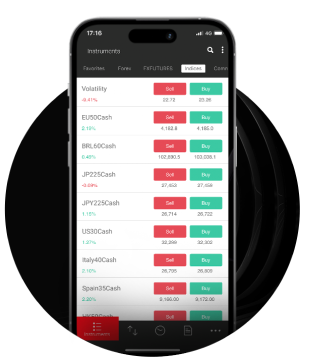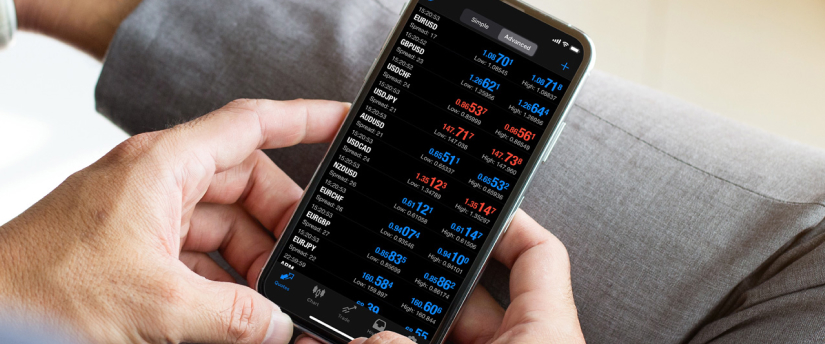Le marché des changes (also known as forex or FX) provides an opportunity for people looking to become financially independent. Forex is the largest financial market in the world, operating 24 hours a day, five days a week, and has a daily trading volume of over $7.5 trillion. Due to the low entry barriers of forex, it is an attractive option for those looking to begin their trading path, diversify their sources of income or move towards building wealth over the long-term.
Sin embargo, pasar de principiante a trader rentable requiere educación, disciplina y planificación estratégica. Esta guía recorrerá los pasos esenciales para comenzar tu viaje en el trading de forex, ayudándote a reducir riesgos y aumentar los posibles rendimientos.
Qu'est-ce que le trading du forex ? When you trade forex, you buy one currency and sell another one at the same time. Currencies are traded in pairs, such as GBP/JPY ou EUR/USD. The prices of currency pairs change constantly due to factors such as economic indicators, geopolitical events, and overall market sentiment.
These fluctuations provide traders with the opportunity to capitalise on short-term price movements.
Central banks, commercial banks, investment firms, hedge funds, multinational corporations, and retail traders (individual investors) are important market participants.
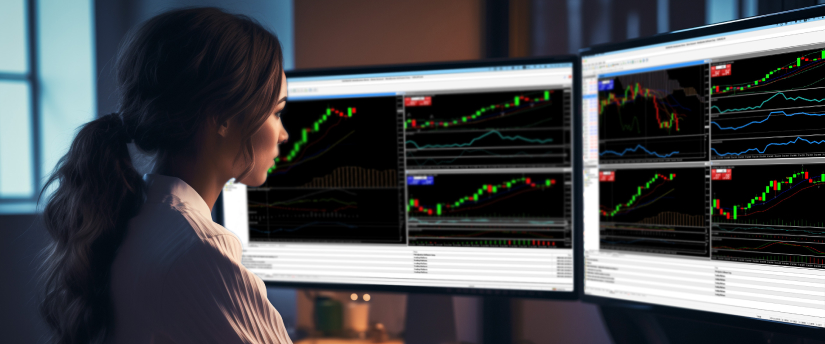
Comment commencer le trading du forex
Edúcate
The first thing is to learn the basics of the forex market. Don’t even think about trading real money until you know what a pip is, how leverage works, and what order types there are.
To gain practical experience, make use of free courses, webinars, eBooks, et demo accounts. Your knowledge is your most valuable asset.
Elige un bróker confiable
Next up is the broker, who is your link to the forex market. Don’t just pick a random broker, but look for one who has low spreads and commission structures, a reliable trading platform with useful tools, learning resources, helpful customer support, negative balance protection and segregated client funds.
Prueba las plataformas y servicios de varios brókers, sin arriesgar capital real, abriendo cuentas demo con ellos.
Desarrolla y prueba una estrategia de trading
You need a well-defined strategy that matches your financial goals, risk tolerance, and time availability in order to trade effectively.
A good strategy should include entry and exit criteria, position size, how to manage risk, time frames for analysis and execution, and which currency pairs you’ll focus on.
Prueba tu estrategia primero en una cuenta demo y haz backtesting con datos históricos. Esta práctica te ayudará a identificar qué funciona y qué necesita mejorar.
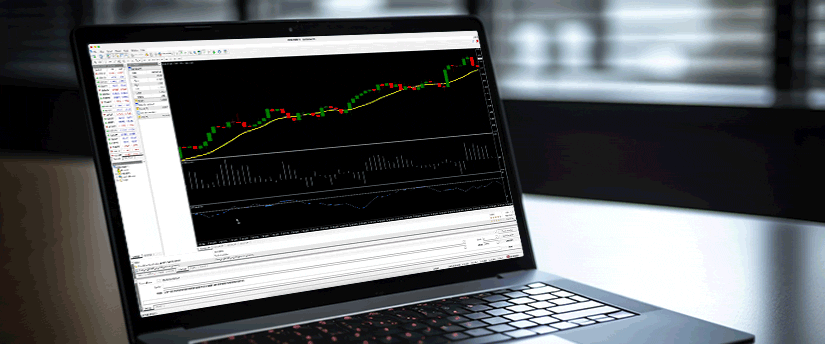
Conviértete en un experto en gestión de riesgos
La gestión de riesgos es uno de los aspectos más importantes del trading. Riesgas perder tu cuenta muy rápidamente si no gestionas bien tu riesgo.
Consejos importantes de gestión de riesgos:
- Nunca arriesgues más del 1-2% de tus fondos en una sola operación.
- Leverage stop-loss orders to limit possible losses.
- Utilize tools like a pip calculator so you actually know what’s at stake.
- Use a position size calculator to standardise risk across different currency pairs.
- Piensa en tu relación riesgo-recompensa, que debe ser al menos 1:2.
- Proteger tu capital debe ser tu máxima prioridad, especialmente al principio.
Crea un plan de trading y lleva un diario
Write down your goals in your trading plan. This will help you stay focused and disciplined. Your plan should include the markets and time frames, risk limits for each trade, trading strategies, and how you’ll track and review your performance.
Tenir un journal de trading détaillé pour enregistrer chaque trade réussi. Incluez les points d'entrée et de sortie, la justification de vos décisions et les leçons apprises. Cette pratique vous aide à apprendre plus rapidement.
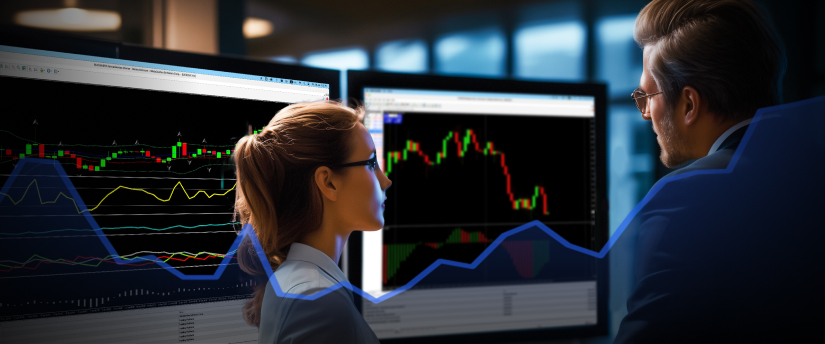
Outils essentiels pour le trading Forex
Outils d'analyse technique
Divers indicateurs techniques et modèles graphiques peuvent vous aider à identifier des opportunités de trading potentielles. Certains outils d'analyse technique utiles incluent les moyennes mobiles, l'indice de force relative (RSI), le MACD (Convergence/Divergence des Moyennes Mobiles), les niveaux de retracement de Fibonacci et les zones de support et de résistance.
Ces outils sont utiles, mais ils fonctionnent mieux lorsqu'ils sont combinés à une stratégie solide et à une bonne gestion des risques.
Analyse fondamentale
Restez informé des actualités et des événements qui affectent le marché. L'analyse fondamentale vous aide à comprendre pourquoi les prix évoluent. Les calendriers économiques, les déclarations et décisions des banques centrales, les actualités géopolitiques et les rapports sectoriels sont des sources importantes.
Calculatrices de gestion des risques
Utiliser les bonnes calculatrices peut vous aider à gérer le risque plus précisément :
Calculatrice de pips Forex
This tool calculates the value of a pip (the smallest price movement) for the specific position size and currency pair.
Understanding pip value helps you understand how much you might gain or lose before placing a trade.
Most platforms have built-in pip calculators, but independent versions are also available online for planning.
Position size calculator
Perhaps the most important risk management tool, this calculator calculates the appropriate lot size based on account currency, currency pair, risk tolerance, and stop-loss level.
Even when volatility or pip values vary, using this calculator guarantees that you risk the same amount across several currency pairs.
Faire croître votre compte de trading de manière constante
Commencez avec un capital suffisant
Even though you can start forex trading with relatively small amounts, inadequate funds can cause you to make poor decisions.
If you’re trading micro-lots, a starting balance of $500-1,000 is reasonable, but $2,000 – $5,000 gives you greater flexibility to deal with market swings.
Fixez des attentes réalistes
Le Forex n'est pas un moyen de s'enrichir rapidement. Fixer des objectifs irréalistes entraîne souvent de la déception. Visez :
Des gains mensuels constants de 1 à 2 % au début.
Améliorer votre stratégie et votre discipline, plutôt que de vous concentrer sur les objectifs de profit.
Accepter les pertes et les drawdowns comme une partie normale du trading.
Patience – le développement professionnel peut prendre des mois, voire des années
Pièges courants à éviter
Surtrading
Overtrading can result in poor trading performance and the loss of possible profits. In addition to increasing transaction costs, it often leads to impulsive decisions that could break your trading strategy.
Overtrading may be driven by boredom, FOMO (fear of missing out), anxiety or stress. To avoid it, maintaining emotional control and a disciplined mindset is essential.
Prise de décision émotionnelle
Le trading peut être assez stressant et peut déclencher toute une gamme d'émotions telles que la peur, l'excès de confiance et la cupidité. Ces émotions brouillent souvent le jugement et conduisent à des décisions impulsives et irrationnelles. Les traders doivent rester disciplinés et respecter leur plan de trading, quelles que soient les fluctuations du marché ou les hauts et bas émotionnels.
Manque de formation
Trading requires continuous learning. Many beginners start trading without understanding how the markets work.
This lack of knowledge frequently results in impulsive decisions and financial losses. Staying informed helps traders keep up with market trends, new strategies, and technological advancements.
The markets are constantly shifting, and those who don’t adapt risk falling behind and missing out on valuable opportunities.
Apprenez des autres
Success in forex trading doesn’t happen overnight. The most prosperous traders treat it like a business, which calls for startup capital, ongoing education, regular performance evaluation, strategy improvement, and a long-term mindset.
By prioritising risk management, using helpful tools, staying disciplined, and committing to continuous improvement, you can build a solid foundation for making money over time.
Not every trader becomes profitable, but those who do typically share these traits. Remember that forex trading is a skill that takes time to develop.
With patience, persistence, and proper preparation, the market offers significant opportunities for those who take it seriously.
Commencez petit, visez la constance et donnez-vous le temps d'apprendre. Votre chemin vers l'indépendance financière commence non pas avec votre premier trade, mais avec votre engagement à devenir un trader informé et discipliné.
DISCLAIMER: This information is not considered as investment advice or an investment recommendation, but is instead a marketing communication.
